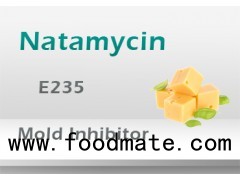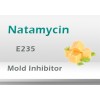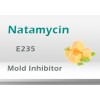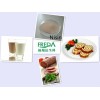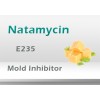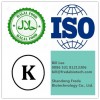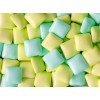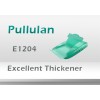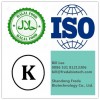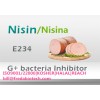I. Introduction
Natamycin is a natural antimycotic product and classified as a polyene macrolide. It is produced during fermentation by the bacterium Streptomyces spp. Natamycin inhibits not only the growth of different kinds of moulds and yeasts but the production of their toxins with high efficiency. While widely used in food preservation and anti-fungal treatment, Natamycin has no effect on bacteria. So it does not affect the natural maturing process of yoghurt, cheese, fresh ham, sausage, etc.
II. Strengths
*Specifically and efficiently inhibiting moulds and yeasts;
*Non-toxic, odorless, no flavor impact;
*Significantly extending shelf life of foods;
*Ideal substitute of chemical preservatives;
*Not affecting other bacteria;
*Extremely low dosage, high efficiency
III. Application
Natamycin is most often used by spaying for surface treatment. It can also be mixed or dipped. The recommended dosage varies for as applications are different. Generally for most of the foods 100ppm natamycin can effectively inhibit the spoilage caused by moulds and yeasts.
Foods that are suitable for spraying treatment include block cheese, shredded cheese, salami and different kinds of sausages.
And it would be the best for the foods including yogurt, sour cream, cream cheese and cottage cheese, fruit juice and fruit preparations to be treated by direct addition or mixing.
Besides, natamycin can be used on silage storage and fruit storage. It kills and inhibits over 100 kinds of moulds that may contaminate grain and animal feed.
IV. Safety
Natamycin is nontoxic to human and free of any carcinogenesis, mutagenesis or hypersensitivity. It is an GRAS material.
V. Quality
Freda natamycin meets GB standards or USP standards. It can also be produced as per contracted standards.
VI. Packing
100g/500g bottle, 20kg/25kg drum, or customized packaging.


